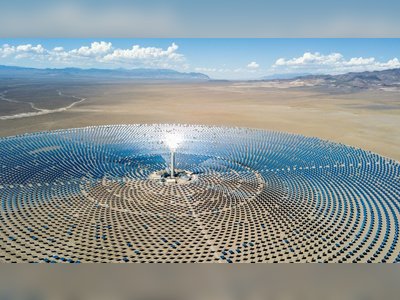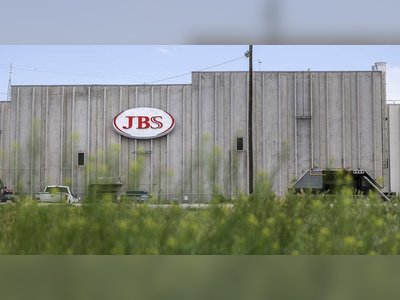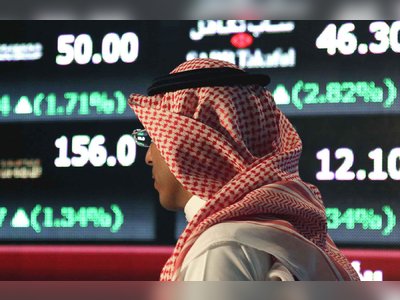SpaceX Rocket Launches, Carrying Four Astronauts to the International Space Station
A SpaceX Falcon 9 rocket, carrying three American astronauts and one Russian cosmonaut, blasted off from Kennedy Space Center in Florida last Sunday night, embarking on a six-month mission to the International Space Station (ISS).
The rocket, owned by Elon Musk's SpaceX, launched at 10:53 PM local time (03:53 GMT Sunday), according to the Agence France-Presse. Just minutes after lift-off, the rocket was soaring over the Atlantic Ocean at a speed of about 9700 kilometers per hour, as described by commentators from NASA.
The mission, which carried three men and one woman, took approximately nine minutes to reach orbit. The spacecraft was set to dock with the ISS, allowing for a crew rotation of the four astronauts on board the orbiting lab.
Originally scheduled to launch on Saturday, the Falcon 9 rocket's takeoff was postponed by 24 hours due to unfavorable weather conditions.
The Endeavor capsule, transporting the crew and resting atop the rocket, had been used in four previous crewed missions by the company. This time, the four passengers were part of "Crew-8," the eighth regular crew rotation mission that SpaceX has conducted for NASA since 2020.
Among the Crew-8 members, Michael Barratt is the only one who has previously visited the ISS. This journey marks his third stay at the orbital station. For the other American astronauts, Mathew Dominick and Janet Epps, as well as the Russian cosmonaut Alexander Skvortsov, this marks their first spaceflight.
NASA and Roscosmos, the Russian space agency, both manage the ISS and have established a crew exchange program whereby each agency takes turns transporting a crew member from the other country. Despite the ongoing conflict in Ukraine, the program has been maintained, leaving the ISS as one of the few remaining collaborative ventures between Washington and Moscow.
The Crew-8 members will join seven other individuals currently aboard the ISS. Following a few days of handover procedures, the four current crew members an American, a Dane, a Japanese, and a Russian will return to Earth aboard their Dragon capsule.
The Crew-8 team is scheduled to conduct over 200 scientific experiments during their six months in the space laboratory, which has continuously hosted astronauts over the past 23 years. While the early years of the ISS were dedicated to its construction, astronauts now have more time for science.
However, the aging station is not without its share of problems. NASA and Roscosmos are monitoring a recent increase in a "leak" flow, as stated by Joel Montalbano, manager of NASA's International Space Station program earlier this week.
The mission, which carried three men and one woman, took approximately nine minutes to reach orbit. The spacecraft was set to dock with the ISS, allowing for a crew rotation of the four astronauts on board the orbiting lab.
Originally scheduled to launch on Saturday, the Falcon 9 rocket's takeoff was postponed by 24 hours due to unfavorable weather conditions.
The Endeavor capsule, transporting the crew and resting atop the rocket, had been used in four previous crewed missions by the company. This time, the four passengers were part of "Crew-8," the eighth regular crew rotation mission that SpaceX has conducted for NASA since 2020.
Among the Crew-8 members, Michael Barratt is the only one who has previously visited the ISS. This journey marks his third stay at the orbital station. For the other American astronauts, Mathew Dominick and Janet Epps, as well as the Russian cosmonaut Alexander Skvortsov, this marks their first spaceflight.
NASA and Roscosmos, the Russian space agency, both manage the ISS and have established a crew exchange program whereby each agency takes turns transporting a crew member from the other country. Despite the ongoing conflict in Ukraine, the program has been maintained, leaving the ISS as one of the few remaining collaborative ventures between Washington and Moscow.
The Crew-8 members will join seven other individuals currently aboard the ISS. Following a few days of handover procedures, the four current crew members an American, a Dane, a Japanese, and a Russian will return to Earth aboard their Dragon capsule.
The Crew-8 team is scheduled to conduct over 200 scientific experiments during their six months in the space laboratory, which has continuously hosted astronauts over the past 23 years. While the early years of the ISS were dedicated to its construction, astronauts now have more time for science.
However, the aging station is not without its share of problems. NASA and Roscosmos are monitoring a recent increase in a "leak" flow, as stated by Joel Montalbano, manager of NASA's International Space Station program earlier this week.














